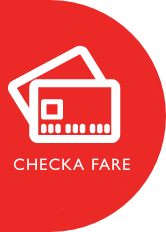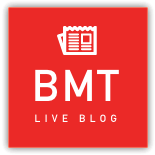
Travelling to the Metstrade Show from the UK has never been more difficult. With Brexit and Covid-19 rules causing confusion, Marine Industry News has put together this helpful guide for you and your business to prepare for the trip to the Netherlands, using the gov.uk and government.nl websites.
Travel rules for the Netherlands, as of 13th October 2021:
You need to have a valid travel document in order to enter the Netherlands. This can be an identity card (for travel within Europe) or a passport.
You must be fully vaccinated AND show proof of a negative test.
If you are a resident of a country outside the EU/Schengen area to which the EU entry ban applies, e.g. the UK, you can travel to the Netherlands if you have paper proof of vaccination. If you are travelling from an area that has been designated as very high-risk, proof of vaccination is not enough. In this case, you must also show a negative test result.
Proof of recovery is only valid for travel to the Netherlands if it was issued in an EU member state. Please note: the United Kingdom (UK) is not an EU member state.
You must show a negative Covid-19 test result if you are travelling to or returning to the Netherlands from outside the EU/Schengen or a Covid-19 risk area within the EU/Schengen. This requirement applies to everyone aged 12 or over. There are some exceptions. For example: people travelling within the EU who can show proof of vaccination or proof of recovery (a Digital Covid Certificate) do not have to show a negative Covid-19 test result.
- Type of test:
- The test used for a NAAT (PCR) test result must be a molecular NAAT (PCR) test (either PCR, RT PCR, LAMP, TMA or mPOCT) based on a sample collected no more than 48 hours before departure in the foreign country.
- For a rapid test result the test must be a rapid test conducted up to 24 hours before departure. Usually this is an antigen test but it can also be a NAAT (PCR) test.
The only ones acceptable are PCR or rapid tests. Information on where to find these can be found here. No other type of test, including self-tests and serological tests used to detect antibodies in blood, is valid.
- Test result: the test result must be negative (or ‘not detected’) for SARS-CoV-2.
- Your given name and surname as stated in your passport or on your identity card.
- Date and time you were tested.
- Name and contact information of the institute, doctor or laboratory that conducted the test (logo or stamp).
This applies if you are travelling:
- by plane
- by ferry or other ship (including sea and river cruises)
- with your own vehicle (such as a car or motorbike)
- by international train or coach, including: IC Berlin, ICE Frankfurt/Basel, Thalys, Eurostar, IC Brussels, Flixbus coach.
Validity of your proof of vaccination:
After you get vaccinated, you will receive proof of vaccination. But the proof of vaccination does not become valid until:
- 14 days after you get your second dose of the BioNTech/Pfizer, Moderna or AstraZeneca vaccines, or
- 28 days after you get the single-dose Janssen (Johnson & Johnson) vaccine, or 14 days after you got the Janssen vaccine if the date of your vaccination was before 14 August 2021.
Your proof of vaccination must:
- have been issued following vaccination with a vaccine that has been approved by the European Medicines Agency (EMA) or is on the Emergency Use Listing of the World Health Organization (WHO);
- have been issued based on full vaccination. That means that:
- the vaccination schedule consists of a single dose and this single dose has been administered (Janssen); or
- the vaccination schedule consists of two doses and:
- both doses have been administered, or
- one dose has been administered and it has been confirmed that the person vaccinated had previously been infected with the virus SARS-CoV-2.
- have been issued in Dutch, English, French, German, Italian, Portuguese or Spanish.
- include the following:
- information identifying the person who has been vaccinated;
- information demonstrating that the person in question has been fully vaccinated against the virus SARS-CoV-2;
- the name of the vaccine and the name of the manufacturer or marketing authorisation holder of each dose of the vaccine administered;
- the date on which each dose of the vaccine was administered;
- the name of the country in which the vaccine was administered;
- the name of the issuer of the proof of vaccination.
Whether you can enter the Netherlands without a visa depends on your nationality. You can stay in the Netherlands without a visa for a maximum of 90 days. British nationals do not require a Visa. If in doubt, use the online Schengen Visa Advisor.
Passport must be valid for at least 3 months after departure
If you are coming from a country outside the Schengen area, your travel document must be valid for at least three months after you leave the Schengen area.
You are allowed to bring most medicines with you as long as you can show that they are for your own use. Make sure you read the rules and restrictions on bringing medicines with you. Strong painkillers and sedatives fall under the Opium Act. You can only bring these medicines with you to the Netherlands if you have an official medication certificate. You may also need to get this certificate legalised. Check with the local authorities in your country of departure what the rules are for taking medicines with you.
To be allowed to enter the Netherlands, you must have at least €55 per person per day for the duration of your stay. Citizens of Schengen or EU countries do not have to prove that they have this money, even if they enter the Netherlands from a non-EU country.
If you are travelling from a non-EU/Schengen area where the risk of contracting Covid-19 is low (a safe country), you may travel to the Netherlands. The EU entry ban does not apply to you.
You need to show proof of vaccination or a negative test result if you are travelling from a safe country/region outside the EU/Schengen.
- See the list of safe countries outside the EU/Schengen area. Please note: the United Kingdom (UK) is not part of the EU/Schengen area.
Before you travel, make sure you have a valid European Health Insurance Card (EHIC) or UK Global Health Insurance Card (GHIC), or travel insurance with health cover.
You may not have access to free emergency medical treatment and could be charged for your healthcare if you do not have an EHIC or GHIC when visiting an EU country.
Travelling by plane
If you start your journey in a safe area or country within the EU/Schengen and change planes in a high-risk area or very high risk area:
- If you do not leave the airport in the high risk area or very high risk area, you are not required to show a negative test result.
- If you leave the airport in the high risk area or very high risk area, however, the negative Covid-19 test requirement applies to you.
If you start your journey in a high-risk or very high risk area and change planes in a safe country or area within the EU/Schengen:
- The negative Covid-19 test requirement for travellers from a high-risk or very high risk area applies to you.
- The result remains valid during the transfer and if there is a flight delay.
Travelling by Car
When driving in the Netherlands, you should always carry your:
- driving licence
- insurance documents
- vehicle documents
- photo ID such as a passport or residence permit
If you are driving a vehicle that does not belong to you then written permission from the registered owner may also be required. You are not allowed to drive on a provisional licence.
Driving a British car abroad
You may need a GB sticker or a UK sticker to drive your car outside the UK. From 28 September, UK stickers will replace GB stickers. Check the GOV.UK Displaying number plates website for more information on what to do if you are driving outside the UK before, on or after 28 September 2021.
If going through the Eurotunnel, have your passport ready when passing through British and French border controls.
When it’s time, drive straight through to the British and French border controls where your passport, vehicle and official documentation will be checked. Please have all passports to hand, removed from wallets and open at the photo page until you have cleared all controls.
You must bring a valid driving licence with you if you plan to drive a (rental) car or motorcycle in the Netherlands. Check if your driving licence is valid in the Netherlands.
Things to note:
- Everyone over the age of 14 is required to show a valid identity document on request.
- Crossing the road without a green signal to do so can be interpreted by local law as Jaywalking, even if it is safe to do. Dutch police have been known to hand out fines in such instances. Always ask for a receipt if given a fine.
- Watch out for trams; they have priority over other traffic and are well known to exercise that right. If a tram or a bus stops in the middle of the road to allow passengers on and off, you must stop.
- If you need the emergency services while you are in the Netherlands, dial 112.
Complete article on MarineIndustryNews.co.uk




